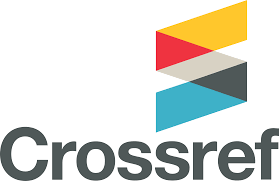Abstract
Research Aims: Human resources are critical for success in the digital economy. However, IT human resources are predicted to be scarce and attracting IT talent is difficult for many enterprises. Currently, employer branding and social media advertising are possible solutions to these problems. This research aims to evaluate the influence of EVP and social media use on the intention to apply for an IT job.
Design/Methodology/Approach: The quantitative research method is used to verify the research model. The sample includes 240 valid respondents from HCMC, Vietnam. The research model includes six independent variables (5 values of EVP and social media use) affecting the intention to apply for a job through organisational reputation. Some analysis methods used include Descriptive Statistics, Cronbach’s Alpha, EFA, Multiple Regression, and Bootstrap Analysis.
Research Findings: The results show that 4/5 of the values (except management value) and social media use have positive impacts on reputation and, in turn, on the intention to apply for a job.
Theoretical Contribution/Originality: This research clarifies the role of employer branding and social media use in attracting talent to the Vietnamese IT industry. The mediating role of organisational reputation is also confirmed using the bootstrapping method.
Managerial Implication in the South East Asian Context: Based on the results, some recommendations have been made to improve the attractiveness of the IT industry in Vietnam and the ASEAN context.
Research Limitations & Implications: Limitations of the study include the small sample size and lack of other aspects of employer branding. So, increasing the sample size and adding some other factors could be implications for future research directions.
References
Agarwal, T., Arya, S., & Bhasin, K. (2021). The evolution of internal employer branding and employee engagement: The temporal role of internal social media usage. Journal of Information and Knowledge Management, 20(1), 2150012.
Alnýaçýk, E., Alnýaçýk, Ü., Erat, S. and Kültigin, A. (2014). Attracting talented employees to the company: Do we need different employer branding strategies in different cultures? Procedia – Social and Behavioral Sciences, 150, 336–344.
Ambler, T., & Barrow, S. (1996). The employer brand. The Journal of Brand Management, 4(3), 185-206.
Backhaus, K., & Tikoo, S. (2004). Conceptualizing and researching employer branding. Career Development International, 9(5), 501–517.
Bellou, V., Chaniotakis, I., Kehagias, I., & Rigopoulou, I. (2015). Employer brand of choice: An employee perspective. Journal of Business Economics and Management, 16(6), 1201–1215.
Berthon, P., Ewing, M., & Hah, L. L. (2005). Captivating company: Dimensions of attractiveness in employer branding. International Journal of Advertising, 24(2), 151–172.
Collins, C. J. (2007). The interactive effects of recruitment practices and product awareness on job seekers’ employer knowledge and application behaviors. Journal of Applied Psychology, 92(1), 180–190.
Dabirian, A., Paschen, J., & Kietzmann., J. (2019). Employer branding: Understanding employer attractiveness of IT Companies. IT Professional, 21(1), 82–89.
Dijkmans, C., Kerkhof, P., & Beukeboom, C. J. (2014). A stage to engage: Social media use, social media engagement and corporate reputation. The 64th Annual Conference of the International Communication Association, Seattle (USA), May 2014.
Gregorka, L., Silva, S., & Silva, C. (2020). Employer branding practices amongst the most attractive employers of IT and engineering sector. International Journal of Human Capital and Information Technology Professionals, 11(1), 1–16.
Ha, N. M., & Luan, N.V. (2018). The effect of employers’ attraction and social media on job application attention of senior students at pharmaceutical universities in Vietnam. International Journal of Business & Society, 19(2), 473-491.
Hair, J. F., Black, W. C., Babin, B. J., & Anderson, R. E. (2014). Multivariate data analysis (7th ed.) Harlow-Essex: Pearson.
Henderson, A., & Bowley, R. (2010). Authentic dialogue? The role of “friendship” in social media recruitment campaign. Journal of Communication Management, 14(3), 237-257.
Hur, Y. K. (2012). Evaluation of employer branding on hospitality and tourism management students’ perceptions of future employers, Indiana: Purdue University ProQuest Dissertations Publishing.
Ibrahim, N. S. (2016). Employer branding: An Islamic perspective. The South East Asian Journal of Management, 10(2), 108-120.
Minchington, B. (2010). The employer brand manager’s handbook: Torrensville: Collective Learning.
Pham, Q. T. (2017). A knowledge management approach for ensuring the success of IT industries in Vietnam. New York: Nova Science Publishers, Inc.
Pham, Q. T., & Huynh, V. K. (2017). The impacts of using SNSs on e-WOM and knowledge sharing through social capital: An empirical study in Vietnam. In Osvaldo et al., Computational Science and Its Applications – ICCSA 2017. ICCSA 2017. Lecture Notes in Computer Science, 10409. Springer, Cham.
Purusottama, A., & Ardianto, A. (2019). The dimension of employer branding: attracting talented employees to leverage organizational competitiveness. Journal of Applied Management, 17(1), 118–126.
Rampl, L. K. (2014). How to become an employer of choice: Transforming employer brand associations into employer first-choice brands. Journal of Marketing Management, 30(13-14), 1486-1504.
Sivertzen, A. M., Nilsen, E. R., & Olafsen, A.H. (2013). Employer branding: Employer attractiveness and the use of social media. Journal of Product & Brand Management, 22(7), 473–483.
TalentBrand (2020). Checklist of an effective Employer Branding. Retrieved July 14, 2020, from https://talentbrand.vn/checklist-cua-mot-chien-luoc-employer-branding/
Theurer, C. P., Tumasjan, A., Welpe, I. M., & Lievens, F. (2018). Employer branding: A brand equity-based literature review and research agenda, International Journal of Management Reviews, 20(1), 155-179.
Truong, N. Q. (2019). Vietnam IT landscape 2019. TopDev.vn.
Turban, D., & Greening, D. (1997). Corporate social performance and organizational attractiveness to prospective employees. Academy of Management Journal, 40(3), 658-672.
VietnamWorks. (2014). Mạng xã hội - Kênh tuyển dụng mới của các doanh nghiệp - HR Insider VietnamWorks. Retrieved from http://hrinsider.vietnamworks.com/mang-xa-hoi-kenh-tuyen-dung-moi-cua-cac-doanh-nghiep.html.
VietnamWorks. (2019). Báo cáo thị trường tuyển dụng trực tuyến nửa đầu năm 2019 tại Việt Nam. Retrieved from http://hrinsider.vietnamworks.com/kt_chuyen_nganh/bao-cao-thi-truong-tuyen-dung-truc-tiep-nua-dau-nam-2019-tai-viet-nam.
Recommended Citation
Pham, Quoc Trung and Vo, Duy Anh
(2022)
"Impact of Employer Value Proposition and Social Media Use on the Intention to Apply for a Job in the IT Industry of Vietnam,"
The South East Asian Journal of Management: Vol. 16:
No.
2, Article 1.
DOI: 10.21002/seam.v16i2.1092
Available at:
https://scholarhub.ui.ac.id/seam/vol16/iss2/1
Included in
Human Resources Management Commons, Management Information Systems Commons, Management Sciences and Quantitative Methods Commons, Marketing Commons












